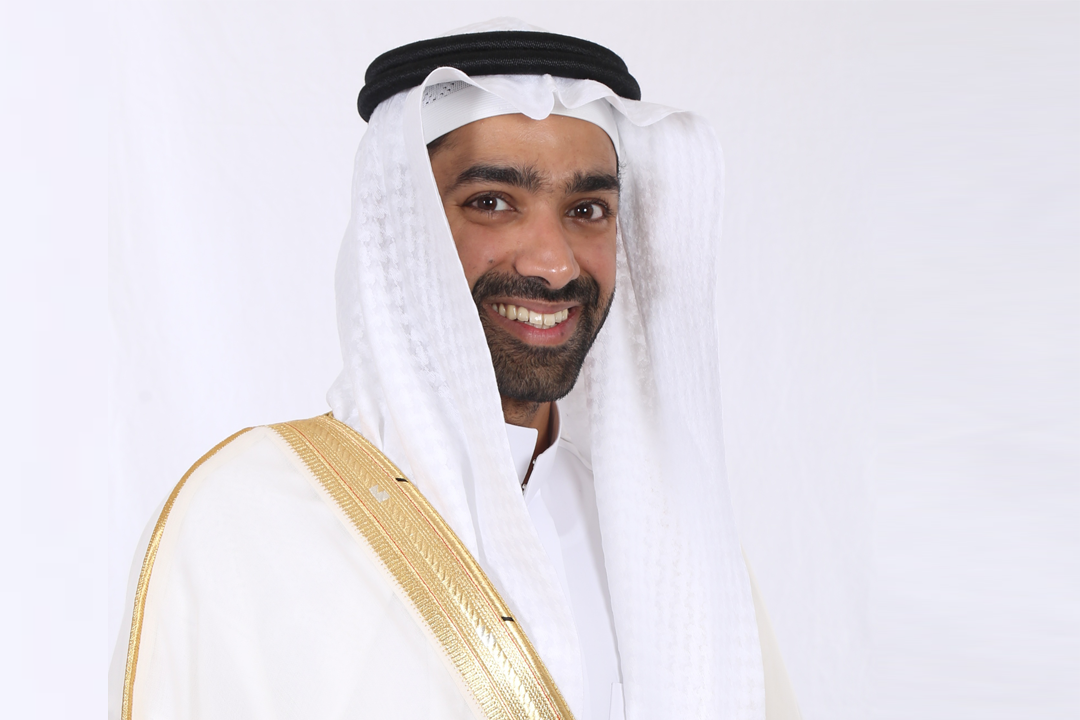Engineering safer cyberspace through talent development

Cybersecurity is a fast-evolving field that urgently needs skilled and passionate experts — a challenge underscored at the World Economic Forum (WEF) in January, which warned of a global shortage of cybersecurity professionals.
King Abdullah University of Science and Technology (KAUST) is helping address this gap for the Kingdom. KAUST alumnus Jameel Showail, who works in cybersecurity at a giga-project, exemplifies the kind of Saudi talent helping ensure the Kingdom’s digital security remains resilient and future-ready.
“There’s a push to localize cybersecurity because of national security,” he said. “Right now, there aren’t enough qualified Saudis to meet demand. Some needs are met through international hires or consultants. But long term, the need is growing. As Saudi Arabia digitizes, especially in government services, there’s more need for cybersecurity.”
Cybersecurity plays an important role in guarding against certain AI-related threats, particularly by upholding the core principles of confidentiality, integrity, and availability, he added. These protections help prevent both humans and machines from corrupting data or disabling critical systems, a matter of increasing concern in a digitizing nation.
“We’ve gone from a low level of digitization 10 years ago to being one of the most digitized governments globally. And with AI, more computers mean more systems that need security. AI can help catch threats, but it won’t replace humans in verifying, responding, and managing incidents, especially in offline or air-gapped secure systems.”
According to WEF’s Global Cybersecurity Outlook 2025, rising digital complexity heightens cyber risks, driven by geopolitical tensions, complex and opaque supply chains, emerging technologies introducing new vulnerabilities, and growing regulatory demands increasing compliance burdens for organizations. Against that backdrop, a widening skills gap challenges the ability of organizations and nations to manage cyber risks effectively.
Fortunately for Saudi Arabia, KAUST is producing the sort of digitally savvy talent needed to navigate the expanding cybersecurity landscape. For example, the KAUST Academy’s Cybersecurity Specialization program, in partnership with the National Cybersecurity Authority, equips Saudi students and recent graduates with the skills and insights needed to excel in cybersecurity.
However, for Showail, the journey toward the cybersecurity profession was not so direct. “I did not study any cybersecurity. While I’ve done a lot of tangential cybersecurity-related stuff, cybersecurity is still a fairly new domain in which people can really get specialized.”
KAUST journey
In 2011, Showail became a KAUST Gifted Student Program (KGSP) scholar, earning an electrical engineering degree in 2016, with a minor in computer science, from the University of Illinois Urbana-Champaign. He then pursued his KAUST master’s degree, focusing on 5G telecommunications and designing a novel 5G filter. After graduation, he joined KAUST startup NOMADD Desert Solar Solutions, designing autonomous solar panel-cleaning robotic software.
Showail then worked as a field service engineer for Thermo Fisher Scientific, simultaneously maintaining scanning electron microscopes in KAUST’s Core Labs. Eventually, in December 2021, he transitioned to a giga project, briefly serving as a project engineer on a construction project before shifting to cybersecurity.
Drawn by its technical depth and dynamic nature, he sees cybersecurity as aligned with KAUST’s interdisciplinary problem-solving mindset — skills that have helped him adapt across diverse roles, from robotics to advanced instrumentation. Initiatives such as CriSys, KAUST’s cybersecurity and resilience community, help propel the Kingdom toward a sovereign, secure, and prosperous digital future.
The systematic thinking he developed through KAUST’s Electrical Engineering program, along with broad-based exposure to multiple disciplines, prepared him well for cybersecurity, Showail said. “KAUST was a time in my life where I felt I could open my mind and see what comes out of it, rather than thinking in a rigid way.”
“The big takeaway is the push for deep understanding, which KAUST professors really emphasize. Even in KAUST courses that I didn’t pursue beyond a class or two, I left equipped to design basic experiments. That emphasis on understanding, not just passing exams, helps a lot, especially in research and problem-solving.”
Familiar impact
The name “Showail” has appeared more than once at KAUST. Showail noted that his uncle, Dr. Ahmad Showail, is a KAUST alumnus, as well as the dean of the College of Computer Science and IT at Taibah University in Madinah.
How can KAUST produce multiple examples of in-Kingdom impact within a single family? Showail, the nephew, said it is due to the mindset a KAUST education instills — that a person can do anything.
“Before KAUST, I was narrow-minded, thinking I had to stick to what I knew in electrical engineering. But working on 5G filters, which I hadn’t really focused on, showed me that with effort, I could do something new and succeed. I applied that mindset throughout my career, looking at fundamental concepts and trusting that technical skills are buildable if I put in the effort. KAUST helped me believe that if I apply myself, I can grow into new areas.”
His focus on cybersecurity comes at an opportune time for the Kingdom, which is increasingly emphasizing this sector. In January 2025, for example, the Global Cybersecurity Forum and the WEF announced the establishment of three new Centres for the Fourth Industrial Revolution, including the Centre for Cyber Economics in Riyadh.
“Saudi Arabia has lots of industrial infrastructure, and so it’s a national priority. KAUST has [industrial control system] labs in its cybersecurity center, helping students understand the physical implications of code. That’s crucial, especially for students from computer science backgrounds who need to understand how code affects the real world.”
He added: “Only go into this field if you like to continue learning. Cybersecurity is evolving constantly. If you’re excited to keep learning technical material even after university, then it’s a great industry. You can stay on the technical side and grow for decades.”

